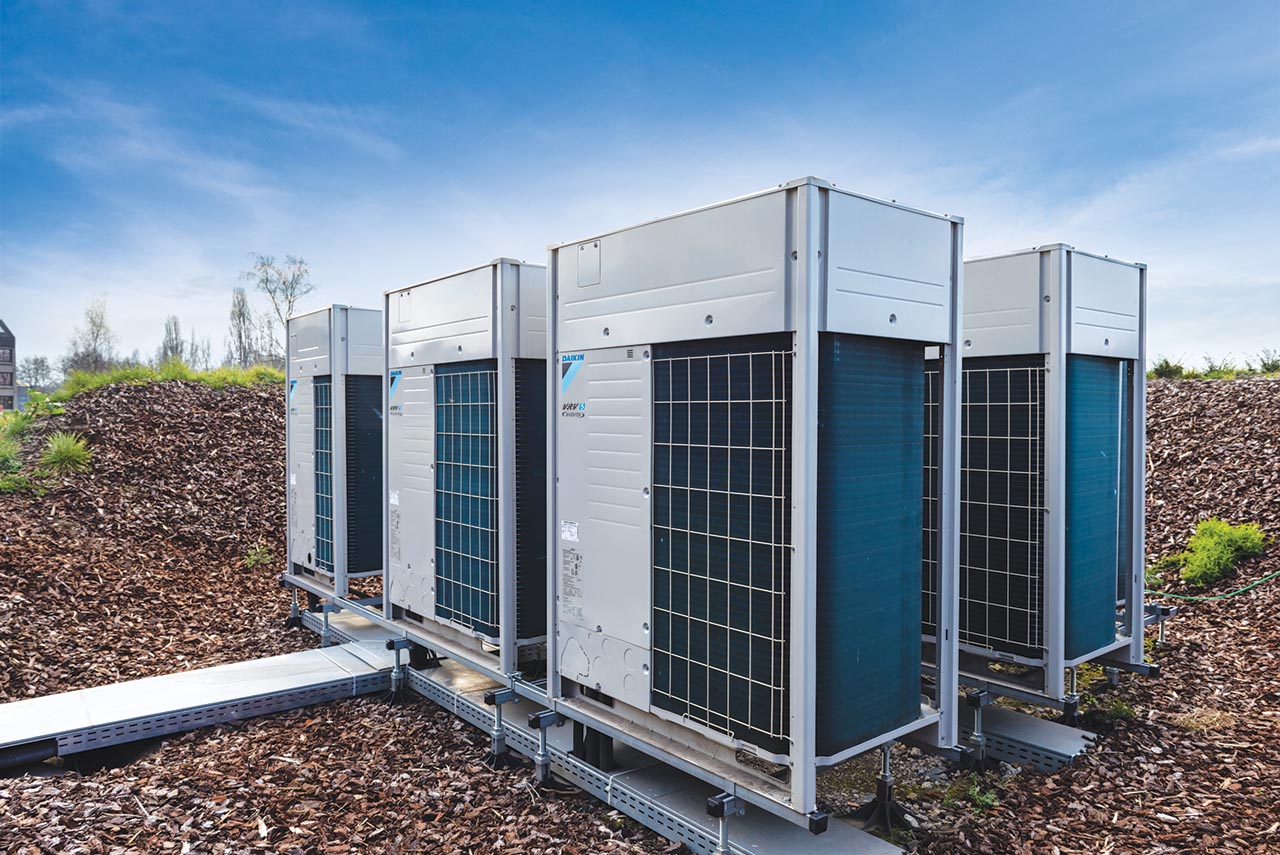
What is the EU F-gas regulation?
The EU F-gas regulation is a set of rules within the European Union deisgned to control and reduce the consumption of hydrofluorocarbons (HFCs) in Europe. The regulation encourages using more sustainable alternatives, such as lower global warming potential (GWP) refrigerants and re-use practices, to mitigate climate change impacts.
The latest revision came into force on March 11, 2024.

*scope has changed, the MDI (metered dose inhalers) sector is now also in scope of the HFC phase down.
Source: Daikin.
Key elements of the 2024 EU F-gas revision
- A stricter phase-down path from 2025 onwards and a phase-out of virgin HFCs by 2050, with a planned review in 2030
- Stricter GWP limits for specific types of products
- Products placed on the market before a GWP limit comes into force can continue to be sold, installed, operated and serviced throughout their entire lifetime
A balanced refrigerant choice per application
Daikin's strategy is to choose the ideal refrigerant for each application by balancing safety, energy efficiency, environmental impact and cost over the entire life cycle of a product, always in line with current regulations.
Sit back and relax: Daikin takes care of the products
The F-gas regulation has raised questions for many, like "What do I need to pay attention to?" and "How do I ensure that the products can be installed?"
At Daikin, we handle these concerns by ensuring that every product we offer fully complies with the regulation. This means that the products we offer you can be sold, operated, maintained and repaired till the end of their lifetime, without any worries.
Product overview and the respective timelines
We have listed the specific bans and requirements of the F-Gas Regulation by product area. Simply click on a product area to get a clear overview.
-
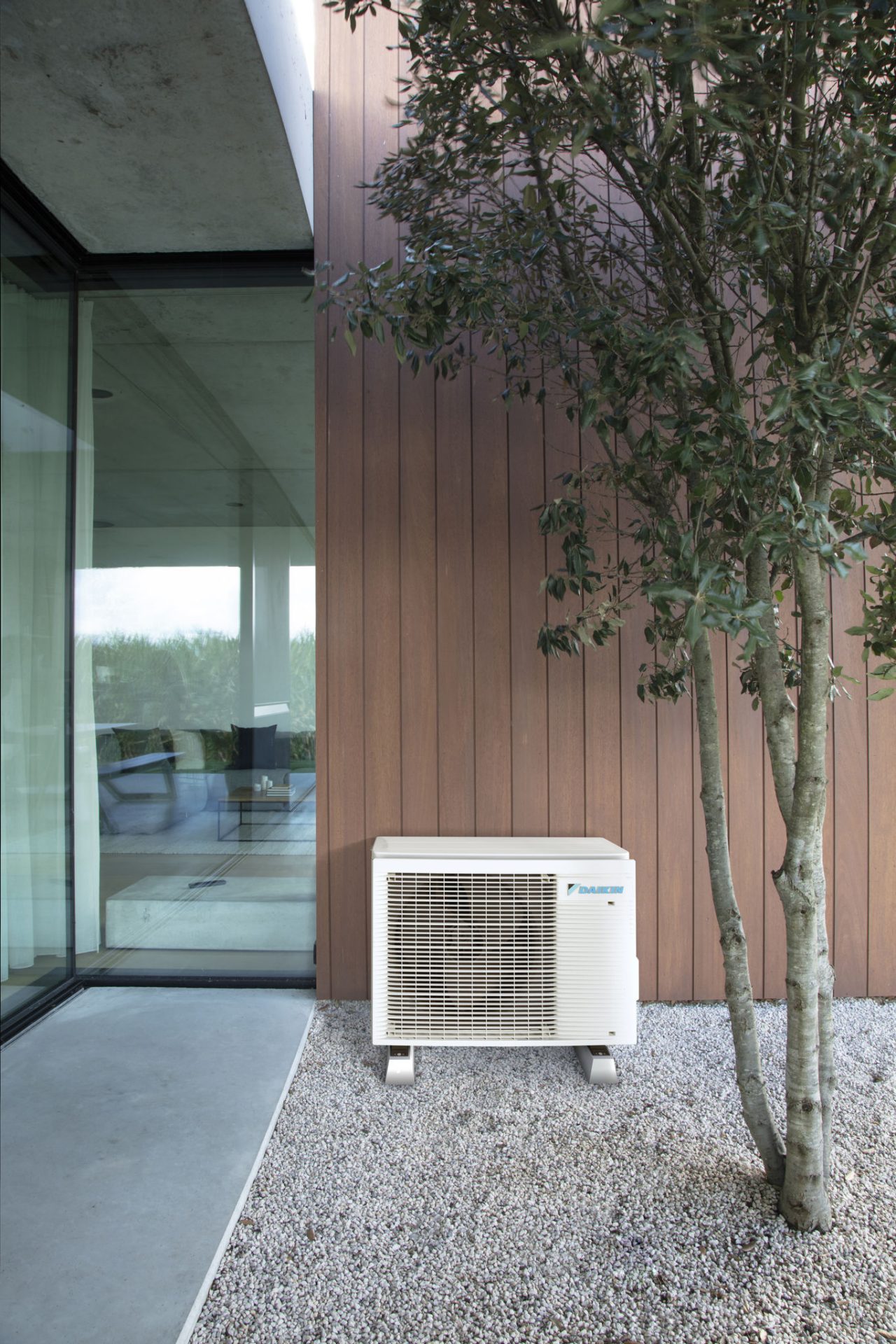
Air-to-air heat pumps & air conditioners
Split, Multi-Split, Sky Air, VRV, Rooftop -
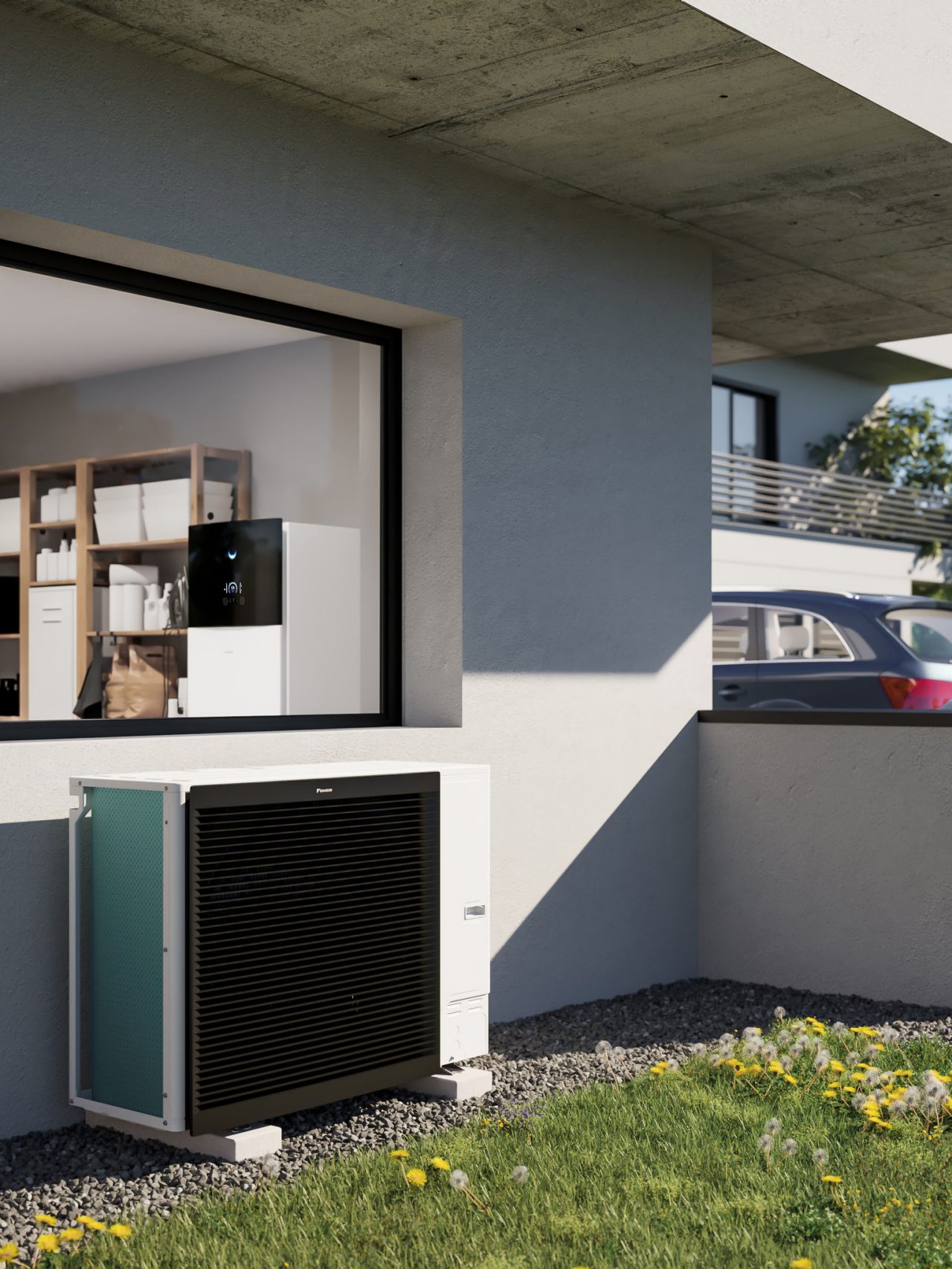
Air-to-water heat pumps
Daikin Altherma split, monobloc, hydrosplit, GEO, ... -
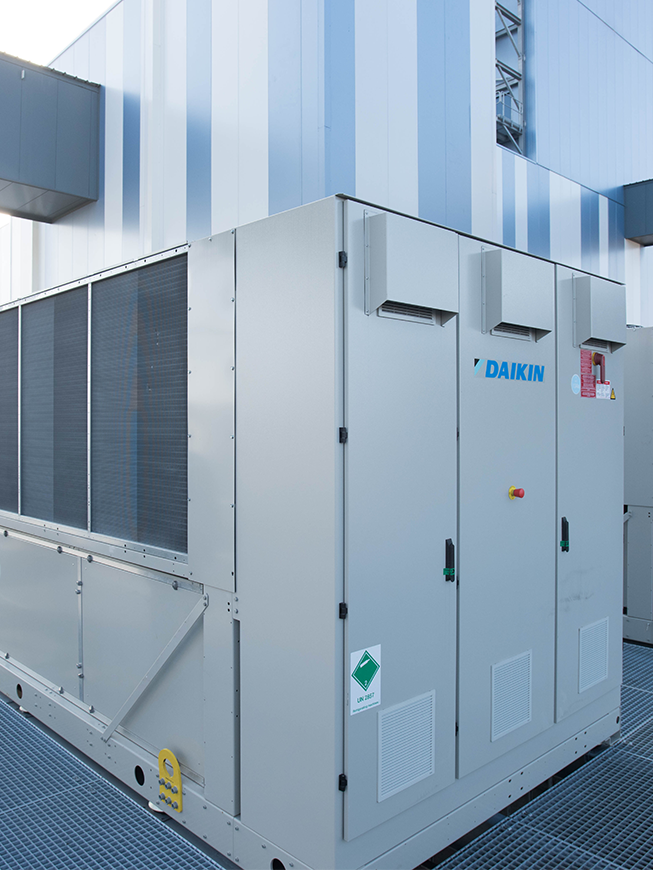
Applied heat pumps & cooling only
Chillers -

Leak checks
Leak checks are an important part of the revised F-gas regulation and are essential when handling refrigerants -
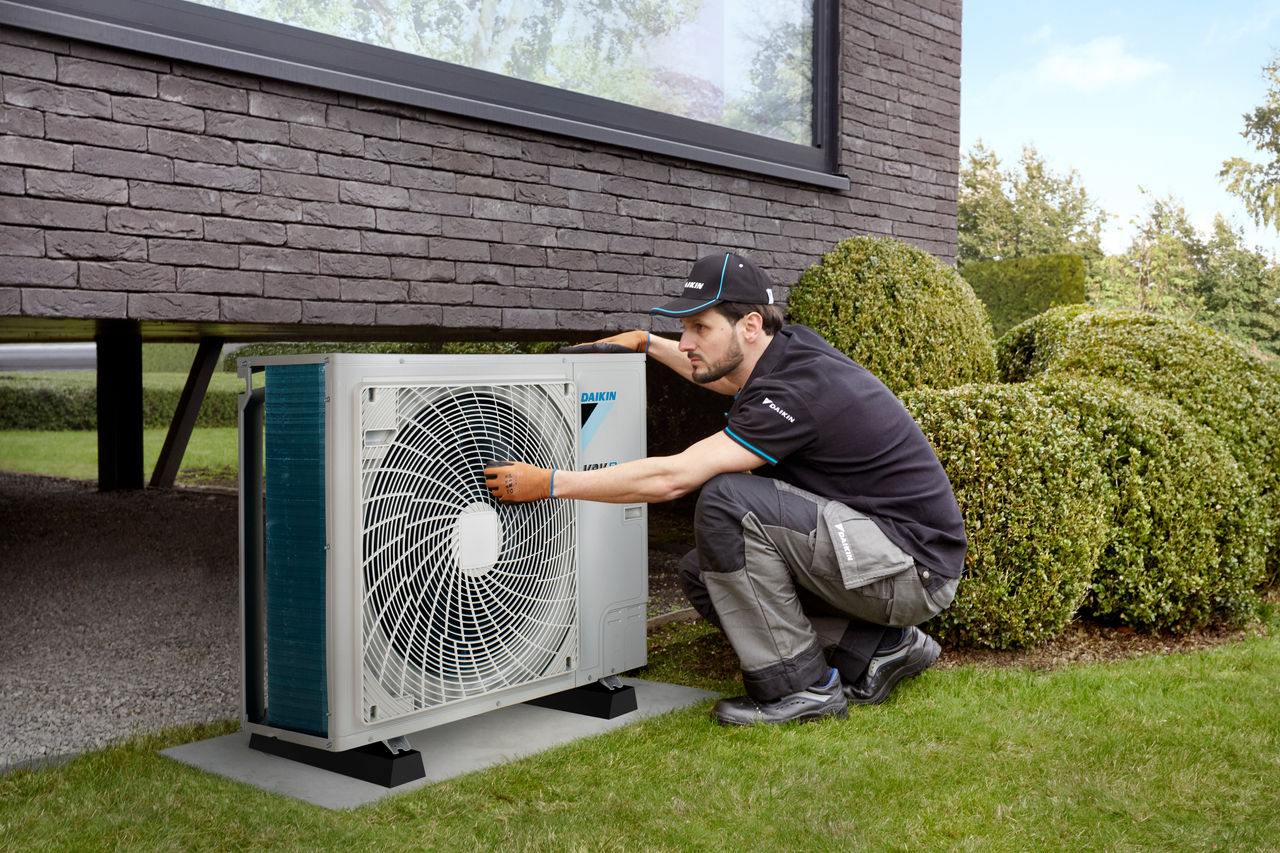
Service & repair of existing Daikin systems
An overview of requirements under the revised F-gas regulation
Frequently asked questions
The official definition of placing on the market is "the release for free circulation within the EU or the first supply or making available to third parties within the EU, whether in return for payment or free of charge, or the use of manufactured substances or of products or equipment for own use."
In practice, as soon as a product leaves one of our European* factories and arrives to be stored in a warehouse in the EU, that product is placed on the market. It doesn't matter who owns the warehouse, whether it is Daikin, you or a third party.
For products produced outside the EU, the day on which the products are cleared through customs in the EU is considered the day of placing on the market.
All products that are on the market in the EU before the ban date imposed by the revised F-Gas regulations now in force, can continue to be sold, installed and operated.
A product is F-Gas compliant if it meets the requirements of the regulation. Different regulations apply depending on the refrigerant used, its global warming potential (GWP) and its application .
You can find out which refrigerants are permitted in which products, and when they will be prohibited in the product overview.
Yes. Daikin products that have already been installed can continue to be maintained and repaired as usual.
If the system is irreparably defective, a new F-Gas compliant product must be installed.
Yes. Daikin products that have already been installed can still be repaired as usual They can still be refilled with new or, if necessary, reprocessed refrigerant. If the system is irreparably defective, a new F-Gas compliant product must be installed.
No. The decisive factor here is the time at which the product was placed on the market. If the product was placed on the market before the ban came into force, it may still be installed and operated after the ban comes into force.
At Daikin, we ensure that every product we offer fully complies with the regulation. This means that the products can be sold, operated, maintained and repaired till the end of their lifetime without any worries.
For products containing HFC refrigerants, no additional leak tests are necessary due to the F-Gas Regulation .
NEW : From now on, leak tests must also be carried out on products containing HFO refrigerants .
You can find more detailed information on leak testing here.
In the case of longer production times (e.g. for custom-made products), the date on which the ban comes into force may fall within the production period.
When you request a product with a longer production time, we only offer products that comply with the F-Gas Regulation at the time of completion (and therefore also at the time of placing on the market).
We are happy to advise you at this point and ensure that all products can be installed and operated without problems.
HFC = partially fluorinated hydrocarbons
HFO = hydrofluoroolefins
HFOs are unsaturated HFCs, which means that HFOs have a double carbon bond. This bond is not as strong and breaks down more quickly in the atmosphere, i.e. it decomposes more quickly and therefore has a lower GWP.
The phase-down programme set out in the F-gas regulation essentially involves reducing the quantities of HFC refrigerants available on the market from January 1, 2025 and only applies to newly placed HFC refrigerants. This means that recycled and reprocessed HFC refrigerants are not affected by the new quota because they were already placed on the market at an earlier date.
HFO refrigerants are not affected by the phase down .
Information on the schedule:
2030: Review of whether the planned ban on newly marketed HFC refrigerants from 2050 is feasible.
Daikin, as a manufacturer, ensures that we only offer products that comply with the regulation.


